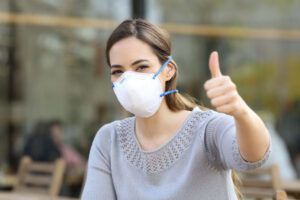
No doubt that COVID-19 caused a big change in patients’ expectations and in healthcare itself. All service providers such as governments, hospitals, clinics have to rethink patient care and the delivery of healthcare services after the pandemic.
Let’s see what changed in the delivery of healthcare services like hair transplants or dental treatments and at the same time in patients’ expecations during the time of COVID-19:
Virtual and touchless: Waiting rooms are a thing of the past, people make appointments online, doctors and patients can meet virtually without potentially explosing themselves to the virus. It is fast, safe, convenient and time saving for both parties. Telemedicine is now a common practice and one of the main expectations of excellent patient care.
Hospitals and clinics must develop touchless technology such as pedal operated hand sanitisers and build technology for virtual consultations between doctor and client.
Faster evolving medicine: People are fed up with months of quarantine and definitely want to return to normal as soon as possible. A quick vaccine is expected to avoid the re-imposition of lockdowns and other restrictions. However, scientists warn it could take a long time to produce a safe and effective vaccine.
High cleaning standards: Patients now demand safe hygienic conditions in healthcare institutions to minimize the risk of infection as much as possible. Doctors and nurses must wear some type of personal protective equipment (PPE) in accordance with regulations.
Protecting healthcare workers: It is essential to ensure the health and safety of healthcare workers by providing them the necessary equipment and training. Without a safe hospital staff, patients will receive inappropiate care and poor patient experience. Healthcare workers need to be safe in order for patients to be able to feel safe in any medical institute.
Preparedness to face pandemics in advance: Let’s face it that governments and providers were unprepared for this pandemic all over the world with few exceptions. How well this crisis was handled will inlfuence trust and confidence in providers. If a location performed poorly, reputation and brand of providers there have been damaged and health travellers will remember them when seeking wellness, health and medical treatment in the future.
No more inequality in the delivery of healthcare services: The pandemic hit harder some segments of the populations than others. Higher mortality rates have been reported among people of colour than among white people in many countries. This fact can lead back to unequal medical care such as overuse or inappropriate use of emergency room services. All people deserve equal medical treatment regardless of skin colour.
Environmental sustainability: The epidemic had at least one positive effect, that the Earth could breathe again. The skies are clear again in most polluted cities in the world, wildlife appeared again in places previously abandoned because of the large crowd and pollution. The big question is: are we ready to stop prior behaviours that have clearly damaged the environment in order to protect the planet for future generations?
